Azerbaijan, China forge stronger ties in new world order Rule-based global system
The leadership of Azerbaijan continues to pursue a resolute multi-vector foreign policy, refusing to follow the forces that seek to divide the world into blocs. This week, a high-level Azerbaijani delegation led by President Ilham Aliyev visited China. Upon returning from China, he hosted the head of EU diplomacy and the Secretary-General of the OSCE. In moments like these, Azerbaijan's leadership role becomes evident on the global stage. Through its actions, Azerbaijan's leadership demonstrates to the world that it is possible—and necessary—to maintain common sense in defending one's interests and continue engaging with all parties in the current international disputes. The forces calling for the opposite and inciting conflict and world war are the very "paper tigers" of imperialism, lacking real power and who will retreat before a firm "no."
A long-established bet on relations with Beijing
On April 22-24, President Aliyev was in China for a high-level state visit. He had previously visited Beijing on working visits in 2014 and for a state visit in 2015. In 2019, Aliyev participated in the 2nd Belt and Road Forum for International Cooperation in Beijing. Not only the visits of high-ranking officials but also events such as Azerbaijan’s attainment of the status of a dialogue partner in the Shanghai Cooperation Organisation in 2016 mark significant milestones in bilateral relations. Beijing places great importance on this organisation as part of its global strategy. The intervals between these dates should not be interpreted as periods of decline — they naturally coincide with the time when Baku was intensively preparing for the liberation of the occupied territories, as well as with the pandemic period, which forced countries to reduce direct contacts.
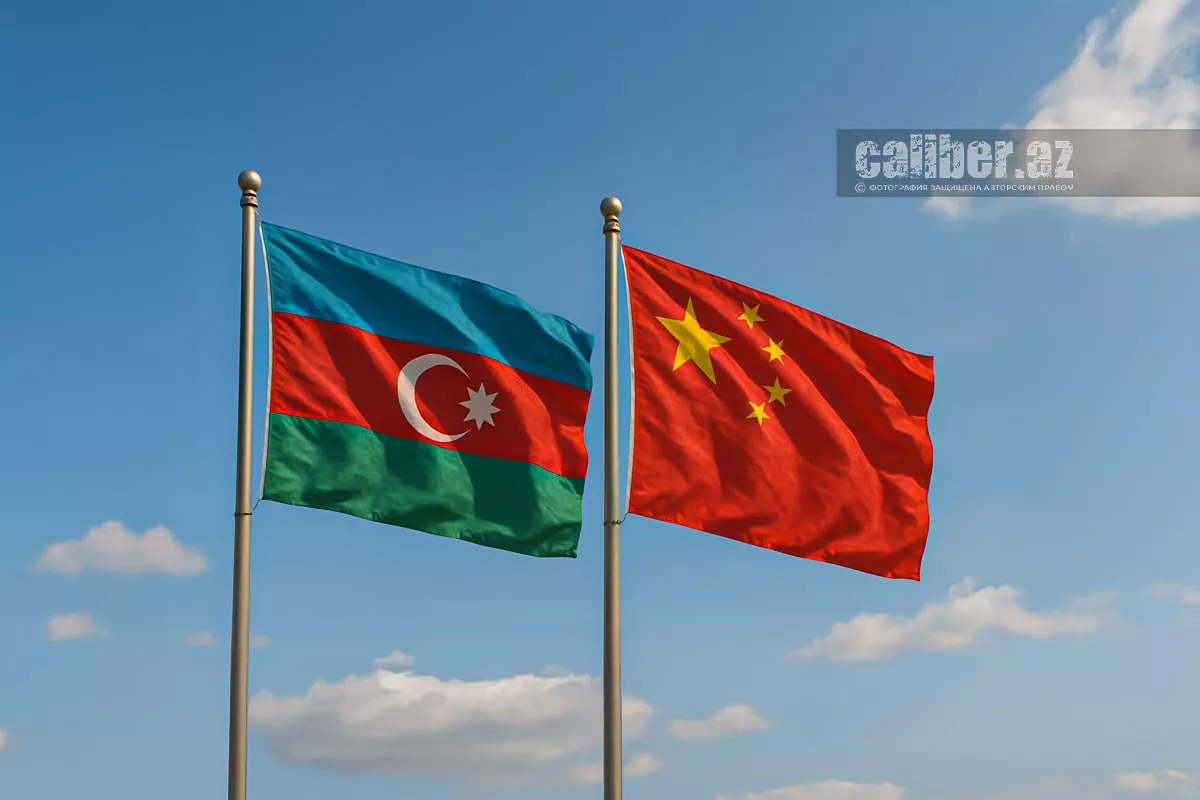
In other words, there have been no periods of decline in Azerbaijan-China relations in recent years; they are built on a truly solid foundation. Moreover, in recent years, these relations have been moving towards closer ties. Baku has continued to engage with Beijing, reasonably believing that the so-called high-moral campaigns launched by various global powers simply mask the struggle for material interests of cynical superpowers.
We are currently witnessing a shift in the EU's stance towards China, even though just recently the EU accused the Chinese of many things! But now, with the global balance of power changing and the EU having fallen out with the US, all those accusations seem to have disappeared. Older generations can easily recall similar cases — for example, how in the early 1970s, the United States went from fierce and bloody hostility with China worldwide to a close friendship within a matter of weeks. But why look so far back? Not long ago, Russia saw all of its European issues as the work of the United States. Yet, just “in a hundred days” of President Trump’s term, the entire Russian propaganda discourse shifted 180 degrees — now it turns out that the EU was to blame for everything. We are not here to judge who is right or wrong, but just remember that when you are told about a global villain in the form of anyone — China, Russia, the EU, the US — bear in mind that such accusatory campaigns tend to end, and the ones who supported them often end up as the losers. The Azerbaijani government has never been part of such campaigns and has always refused to follow the course of any superpower or to ally “against someone.”
A world truly "based on rules" is needed
An example of this can be seen in Azerbaijan's continued pursuit of developing relations with China in recent years. These have been challenging times, during which the team of former US President Joe Biden from the Democratic Party, along with the liberal elites in the EU-NATO countries, intensified their aggressive stance towards China. This approach was based on radical revisionism of the international situation in the Far East — from attempts to create an "Asian NATO" or deploy European NATO forces in the Far East against China, to experiments with Japan’s remilitarization (also against China), and finally, efforts to change the status of the separatist entity on Taiwan.
The reckless and dangerous nature of these attempts to destabilise the international system, which peaked in 2023-24, was evident. Unfortunately, many countries joined these efforts, even against their own interests. Some, in order to please Biden and his liberal allies, even enthusiastically severed ties with Beijing and are now desperately trying to figure out how to restore them.
In these circumstances, Azerbaijan continued its policy of cooperation with China while also strengthening its relations with other global players. In July of last year, at the SCO summit in Astana, a "Joint Declaration on Establishing Strategic Partnership between the Republic of Azerbaijan and the People's Republic of China" was adopted. Simultaneously, in 2024, bilateral trade grew by 20.7% compared to the previous year, reaching $3.744 billion. China moved up to fourth place among Azerbaijan's trading partners.
During the current visit, the sides once again highlighted their shared positions on the international stage, outlining them in a detailed "Joint Statement on the Establishment of a Comprehensive Strategic Partnership between the Republic of Azerbaijan and the People’s Republic of China." In this statement, the parties not only listed specific areas of cooperation but also reaffirmed their commitment to each other's territorial integrity, with China supporting Azerbaijan's peace agenda.
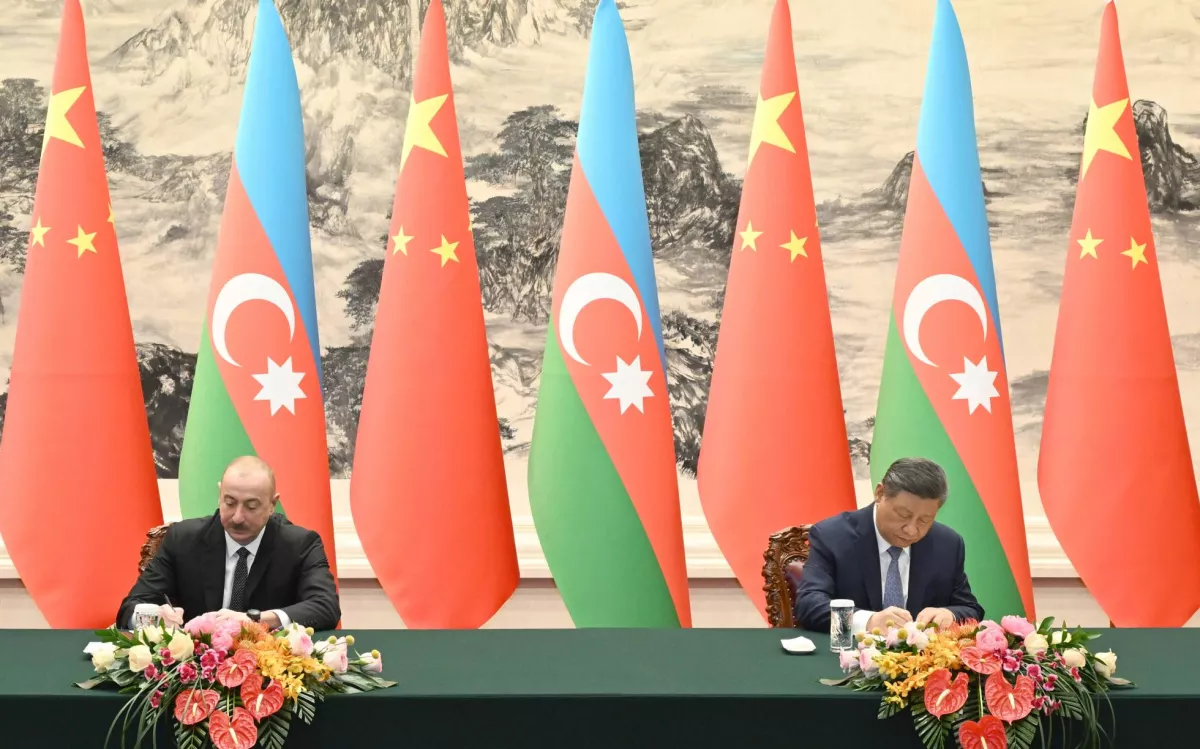
Furthermore, Baku and Beijing advocated for a world truly "based on rules," particularly supporting the preservation of reformed international rules and structures in finance and trade that reflect "changes in the global economic landscape." In the political sphere, both sides "are committed to upholding the UN-centered world order and the international system based on international law and the fundamental norms of international relations based on the purposes and principles of the UN Charter, and oppose hegemony and power politics. The Parties advocate for the promotion of universal values - peace, development, equality, justice, democracy and freedom - and strive to create a new type of international relations and a community of common destiny for mankind."
Both countries have demonstrated in practice that they adhere to common principles on some of the most important issues. Among these is the fundamental stance of refusing to support extremist actions in international politics, particularly those related to boundary revisionism and separatism. Baku has always recognised the unity of China (and in turn, China has recognised Azerbaijan’s territorial integrity). During the current visit, the Azerbaijani delegation emphasised that it does not recognise the elections held by separatist structures in Taiwan. By signing a cooperation agreement between the city of Nakhchivan and the capital of China’s Xinjiang Uyghur Autonomous Region, Urumqi, Azerbaijan made it clear that it does not intend to support campaigns launched by the West and pro-Western circles, which effectively seek to incite inter-ethnic hostility. Issues concerning the rights of the Uyghur population in this region should be addressed within the framework of the Chinese Constitution and political system. In turn, China not only firmly recognises Azerbaijan's territorial integrity but also helps in the reconstruction of the country’s regions that are overcoming the consequences of more than three decades of occupation by Armenian nationalists.
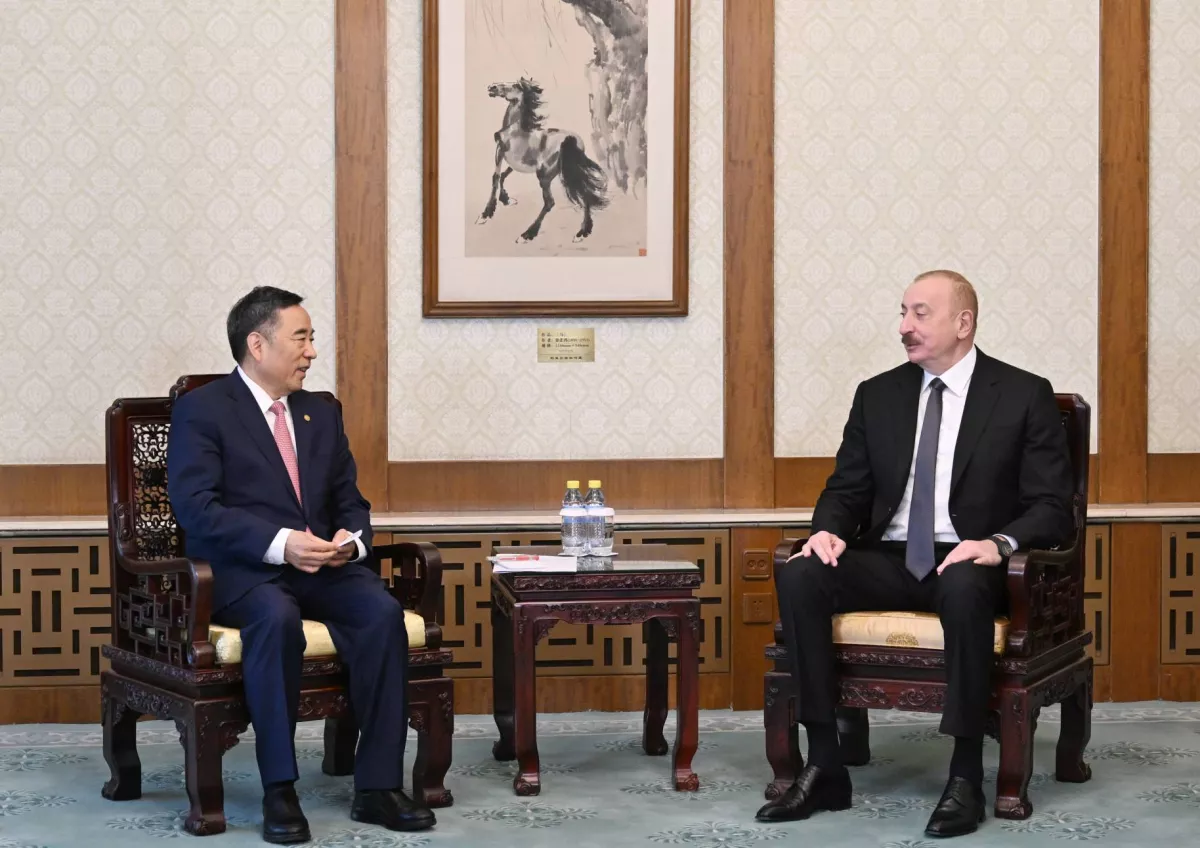
In this context, attention should be drawn to President Aliyev's meeting in Beijing with the head of China Energy Engineering Corporation (Energy China), Song Hailiang. This company is implementing several projects in Azerbaijan: it has not only been awarded the contract for a major wind energy project in the Caspian Sea but has also invested in solar energy production and other projects in the Fuzuli district, much of which was turned into a depopulated "dead zone" by Armenian nationalists.
"More China" in the world system — more peace?
The previous experience of interaction and numerous common positions on international issues form the foundation for cooperation between Azerbaijan and China in the inclusive restructuring of the international order. And this restructuring is both necessary and possible.
It is necessary because many elements of the current international order no longer correspond to today’s realities and the principle of justice, particularly the role of old imperial powers and superpowers. These powers are failing to manage global issues, as evidenced by the recent pandemic and the current slide into universal confrontation and the threat of nuclear holocaust. It is possible because the balance of power in the world, by any parameters—GDP, armed forces, or leadership in technology—is shifting in favour of China and other non-Western countries. Against the backdrop of the Western elites' criticisms of Beijing, President Aliyev openly speaks about China's peaceful rise as a positive development: "China’s development serves not only the interests of its people but also benefits the entire world."
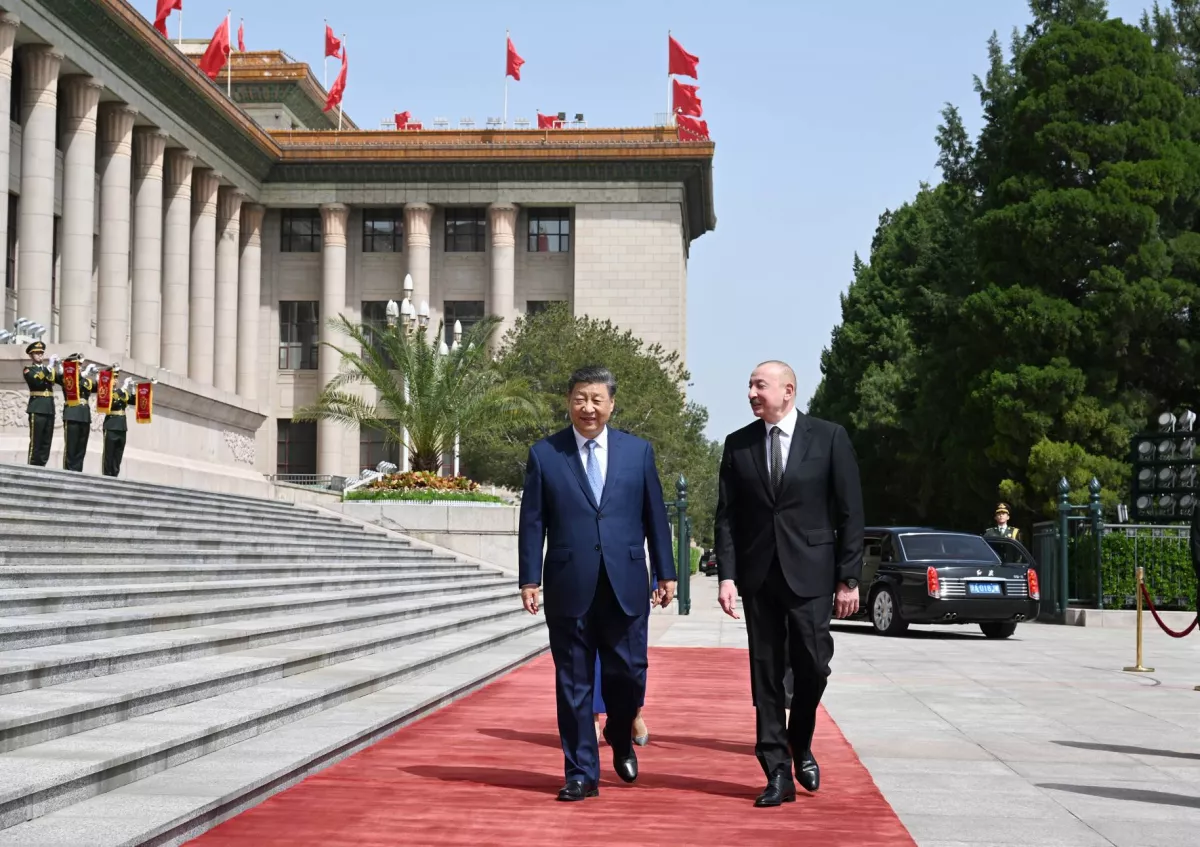
In the context of the inevitable peaceful global rise of China, several specific points raised during the visit of the Azerbaijani delegation should be considered. Baku and Beijing are exploring areas where both countries could mutually benefit from the impulses of this rise. For example, there is likely an expansion of Azerbaijan’s participation in the Shanghai Cooperation Organisation (SCO), as mentioned in the sixteenth point of the joint statement: “China supports the elevation of Azerbaijan's legal status in the SCO.” Another example is the agreement mentioned in the third point of the same document, where the two sides commit “to enhance the alignment of the Belt and Road Initiative with Azerbaijan’s national development strategies - the 'Revival of the Silk Road' and the 2030 Socio-Economic Development Strategy.”
However, the most significant aspect of the Azerbaijan-China cooperation at present is collaboration in the field of transportation and communications, particularly land transit shipments between Europe and East Asia, which in the foreseeable future will only be possible through Azerbaijan. In addition to signing an intergovernmental agreement on international multimodal transportation, the leaders of the two countries emphasized this issue in the joint statement, which stated: “China is ready to cooperate with Azerbaijan and other countries along the route to continuously improve customs clearance convenience and cargo transportation efficiency, thereby jointly establishing safe, stable, and direct China-Europe-China Trans-Caspian express routes.”
In an interview with Xinhua, the President of Azerbaijan emphasised that Baku not only plans to cooperate with Beijing within the framework of the Belt and Road Initiative, but has already made considerable efforts to develop international transport corridors. He recalled that over the past two decades, Azerbaijan has built and renovated 21,000 kilometres of highways and constructed more than 1,500 kilometres of railways. Most of these play a crucial role in facilitating communications between Europe and East Asia, in line with the goals of the Belt and Road Initiative. This includes major projects such as the Baku-Tbilisi-Kars railway, the Trans-Caspian International Transport Route (Middle Corridor), and the Baku Trade Port.
Azerbaijan is well aware of the global importance of these transport links. As President Aliyev noted, "the Middle Corridor is a reliable and secure route linking Europe with Central Asia and China via the Caspian Sea. It stands out as the most competitive option for transporting goods between China and Europe, with its significance growing steadily." The President was diplomatic in his phrasing, but to sharpen the point: it is the only and irreplaceable route of its kind. Naturally, the existing infrastructure has yet to fully meet the growing demand along these international routes, but transit volumes are steadily increasing. Last year, transit shipments between Azerbaijan and China rose by 86 per cent compared to the previous year, reaching 378,000 tonnes.
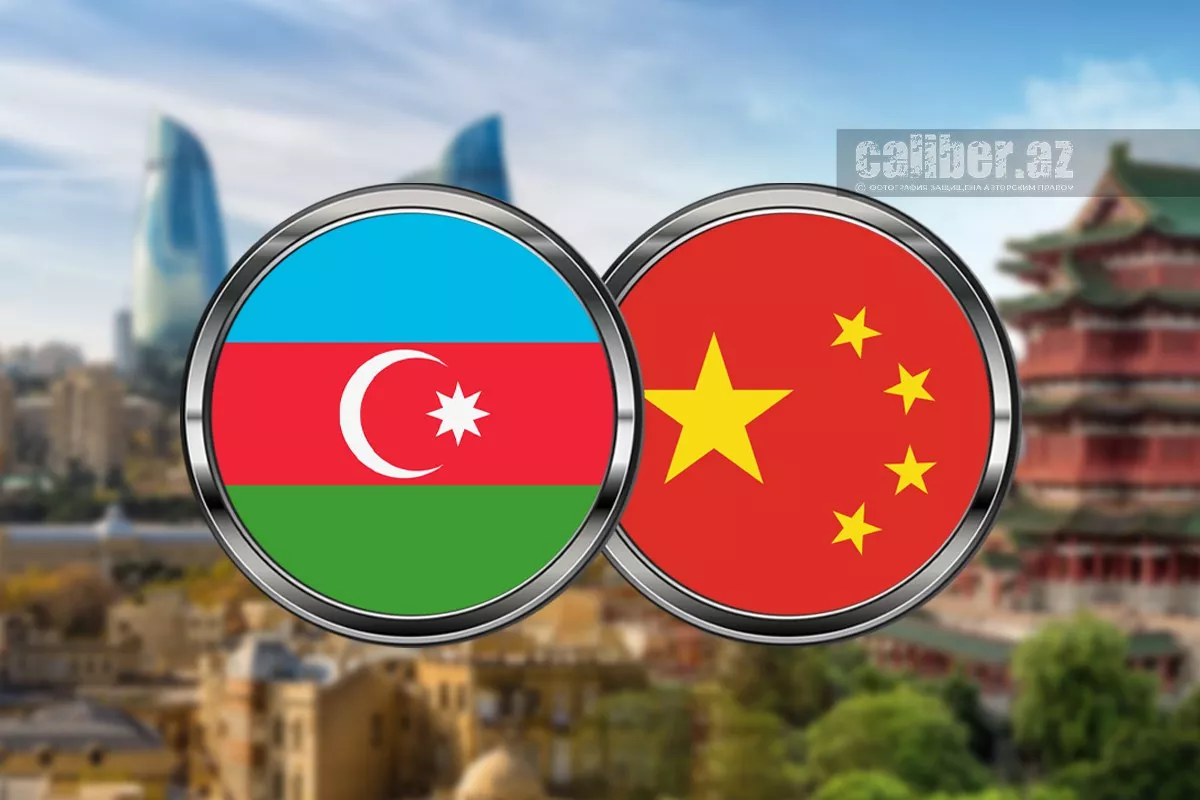
The scope of cooperation between Azerbaijan and China extends beyond merely transit transport flows between Europe and East Asia. The largest Chinese company, Energy China, presented proposals to President Aliyev regarding energy corridors, marking a logical continuation of the long-term joint energy planning project that was signed during the visit. In other words, following the nearly twenty documents signed, new initiatives are already underway.
In conclusion, it is important to emphasise that this is not just a matter of bilateral relations but also reflects Baku's readiness for constructive global transformation. The new world is already replacing the old one, which emerged after the victory of the U.S. and NATO in the "Cold War." Once, people mourned the end of old eras, nostalgically sighing for the La Belle Époque. But today, it is more fitting to breathe a sigh of relief—the departing era was brief and bloody. Predicting what the new world will look like is not easy, but there is no doubt that China and non-Western countries will play a greater role in it. The only question is how much "greater." The current self-proclaimed masters of the world order are trying to frighten us with this future. But should we believe them? After all, if the history of Western superpowers' global dominance is almost entirely a series of wars, China, when it was the most powerful state in the world, waged almost no wars with its neighbours. For four centuries, this period is now referred to as the "Confucian World." Which of the so-called advanced Western powers can boast of something similar? By the way, the "Confucian World" was also brought to an end by Western and Russian interventions, and China entered what became known as the "Century of Humiliation."
And finally, it is not only the majority of the world that has no reason to mourn the departure of the era of lies, blood, and tyranny of the old imperial powers, intoxicated by their successes in the early 1990s. Specifically, Azerbaijan has no reason to lament its passing. For Azerbaijan, it was, among other things, a time when the world’s players turned a blind eye to the bloody actions of Armenian nationalists and the Azerbaijani victims. It is deeply symbolic that China, which calls for a new world order based on rules but one that is fairer, is helping Azerbaijan overcome the difficult legacy of the previous era—the result of the collusion between Armenian nationalists and a number of global empires—at the regional level.








